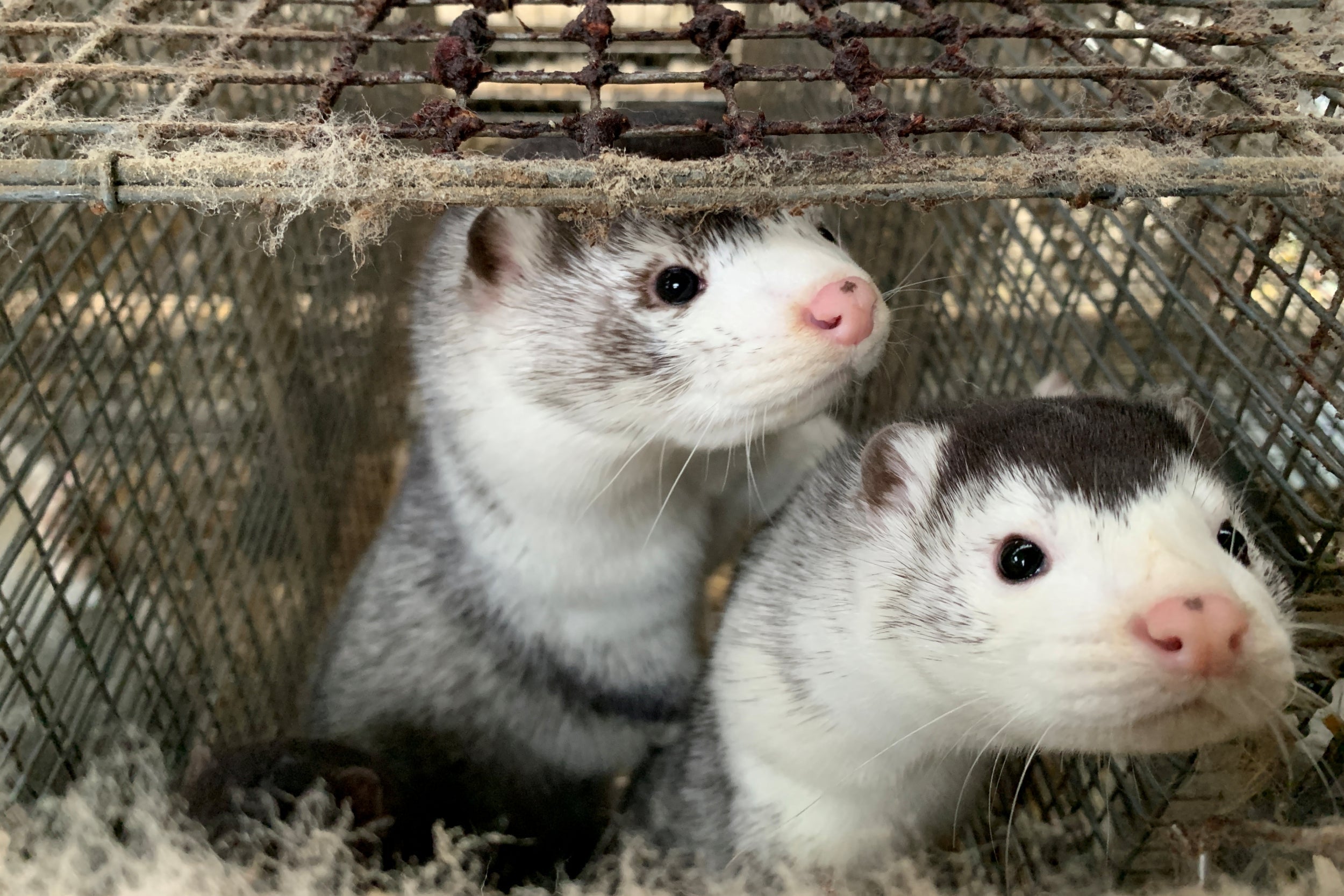Farming carnivores like mink can create breeding ground for zoonotic disease, research says
Non-functional genes may allow pathogens to lurk undetected, writes Jon Sharman


Farming carnivorous animals like mink could create breeding grounds for diseases that pose a risk to humans, genetic analysis suggests.
Researchers from the University of Cambridge have found that a trio of genes responsible for attacking pathogens do not work in carnivores the way they do in other mammals, meaning the animals’ bodies cannot kill the infections.
They might therefore become asymptomatic carriers of dangerous diseases and, in large numbers and at close quarters, act as a breeding ground or “disease reservoir” for mutant strains that could infect humans, the university said.
Diseases which jump the species barrier to people are known as “zoonotic”; examples include Covid-19 and salmonella.
The genes in question help maintain mammals’ gut health by producing proteins called inflammasomes which trigger the immune system to fight pathogenic invaders. However, among carnivores these genes have lost their functionality.
Explaining meat-eaters’ ability to thrive despite this defect, the scientists said their high-protein diet had an anti-microbial effect – offsetting the inability to combat infection in the gut by expelling it via diarrhoea, for example.
However, diseases could lurk undetected elsewhere in the animals’ bodies, they said.
Professor Clare Bryant, a senior author of the study from Cambridge’s veterinary medicine department, said: “We’ve found that a whole cohort of inflammatory genes is missing in carnivores. We didn’t expect this at all.
“We think that the lack of these functioning genes contributes to the ability of pathogens to hide undetected in carnivores, to potentially mutate and be transmitted becoming a human health risk.
“When you have a large population of farmed carnivorous animals, like mink, they can harbour a pathogen – like SARS-CoV-2 and others – and it can mutate because the immune system of the mink isn’t being activated. This could potentially spread into humans.”
Family pets are not a threat, the university added.
The new paper is published in Cell Reports.
During the coronavirus pandemic millions of mink were culled around the world because of their capacity to transmit Covid-19 to humans.
One of the hypotheses around the emergence of coronavirus was that it broke out from a so-called wet market in Wuhan, China, where live and often wild animals are sold.
Bats in particular are noted for their ability to harbour coronaviruses, but the Cambridge researchers said carnivores carry even more zoonotic pathogens than they do. Forty-nine per cent of meat-eater species have them.
Join our commenting forum
Join thought-provoking conversations, follow other Independent readers and see their replies
Comments
Bookmark popover
Removed from bookmarks